-
 +18 +1
+18 +1How modern cities could suffer the same fate as ancient Angkor
Research shows how ancient Angkor experienced the same challenges as modern urban networks. As we move further into a period characterised by extreme weather events, the resilience of our urban infrastructure will be tested. Will our cities go down like Angkor did? By Dan Penny.
-
 +8 +1
+8 +1The Mysterious Bronze Objects That Have Baffled Archaeologists for Centuries
They've been discovered at Roman-era sites, but no one knows what they're for. By Tom Metcalfe.
-
 +14 +1
+14 +1Archaeologists unearth 3,800-year-old wall relief in Peru
Wall carvings were found in what was once a fishing city of the Caral civilization, the oldest in the Americas. The relief is thought to symbolize a period of drought and famine brought on by climate change.
-
 +12 +1
+12 +1How the World Elites are Going to Betray Us: Lessons from Roman History
Emperor Honorius had run away from Rome, settling in Ravenna, with ships ready to take him to safety in Byzantium if things were to get really bad. By Ugo Bardi.
-
 +12 +1
+12 +1Rare Roman 'horseshoes' unearthed
The shoes, known as hipposandals, were found by a volunteer at Vindolanda.
-
 +2 +1
+2 +1Lovers of Wisdom
Diogenes Laertius compiled the sole extant work from antiquity that gives anything like a comprehensive picture of Greek and Hellenistic philosophy. He may have been a flaming mediocrity. He may have been credulous and intellectually shallow. He may have produced a scissors-and-paste job cribbed from other ancient sources. But those other sources are lost, which makes what Diogenes Laertius left behind, to quote the Routledge Encyclopedia of Philosophy, “truly priceless.” By Jim Holt.
-
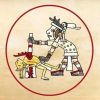 +12 +1
+12 +1Life on the slippery Earth
Aztec moral philosophy has profound differences from the Greek tradition, not least its acceptance that nobody is perfect. By Sebastian Purcell.
-
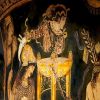 +4 +1
+4 +1Delphic priestesses were the world’s first political risk consultants
The Pythia offered practical counsel that could shape future actions, just as political risk analysts do today – though we’d use modern jargon and call it ‘policy’ in the public sphere, and ‘corporate strategy’ in the business world. By John C. Hulsman.
-
 +3 +1
+3 +1What Depictions of Medusa Say about the Way Society Views Powerful Women
The infamous Gorgon has evolved across millennia. In ancient Greece, Medusa had dragon’s scales; in 2016, she became an anti-Hillary Clinton meme. By Abigail Cain.
-
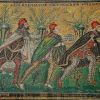 +10 +1
+10 +1Before MAGA: Mithras, Phrygian Caps, and the Politics of Headwear
Despite the current political landscape of the US, we can look to antiquity to see that the red cap was actually once a symbol of citizenship and welcome to the foreigner.
-
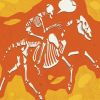 +21 +1
+21 +1New Evidence Fuels Debate over the Origin of Modern Languages
Nomadic horse riders likely opened a “steppe bridge” between Europe and Asia, but recent genetic data raise more questions. By Roni Jacobson.
-
 +2 +1
+2 +1We probably won’t hear from aliens. But by the time we do, they’ll be dead
Astronomers build on the Drake Equation to probe the chance that humans will find existing aliens. The answer: Not likely. By Lisa Grossman.
-
 +10 +1
+10 +1The heroine Atalanta
In ancient Greek mythology, there is a dearth of stories centred on female heroines. An important exception is the fearless Atalanta. By Josho Brouwers.
-
 +2 +1
+2 +1Sex and death in the classical world
From striking coffin portraits to boldly erotic statues, the art of the Romans and Greeks tells us compelling stories about how they lived, died, and loved. By Mary Beard.
-
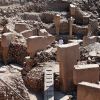 +13 +1
+13 +1How to change the course of human history
The story we have been telling ourselves about our origins is wrong, and perpetuates the idea of inevitable social inequality. David Graeber and David Wengrow ask why the myth of 'agricultural revolution' remains so persistent, and argue that there is a whole lot more we can learn from our ancestors.
-
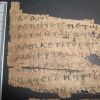 +14 +1
+14 +1The Illegal Papyrus Trade and What Scholars Can Do to Stop It
In 2012, a remarkable artifact appeared on eBay — and my research into its origins raised troubling questions.
-
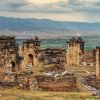 +15 +1
+15 +1This Roman ‘gate to hell’ killed its victims with a cloud of deadly carbon dioxide
Priests survived because they were taller than their animal sacrifices
-
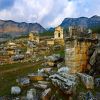 +26 +1
+26 +1How the Roman “Gates of Hell” Killed Animal Sacrifices but Let Human Priests Escape Unharmed
In ancient times, the gates seemed to respond to supernatural powers, but it's actually all about science. By Julissa Treviño.
-
 +2 +1
+2 +1In Sudan, Rediscovering Ancient Nubia Before It's Too Late
Long ignored by white archaeologists as a mere footnote, modern scientists are now racing to document what's left of the ancient African civilization. By Amy Maxmen.
-
 +30 +1
+30 +1Clay tablets from the cradle of civilisation provide new insight to the history of medicine
Ancient “doctors” mixed magic and medicine to heal patients. By Bo Christensen.
Submit a link
Start a discussion




















